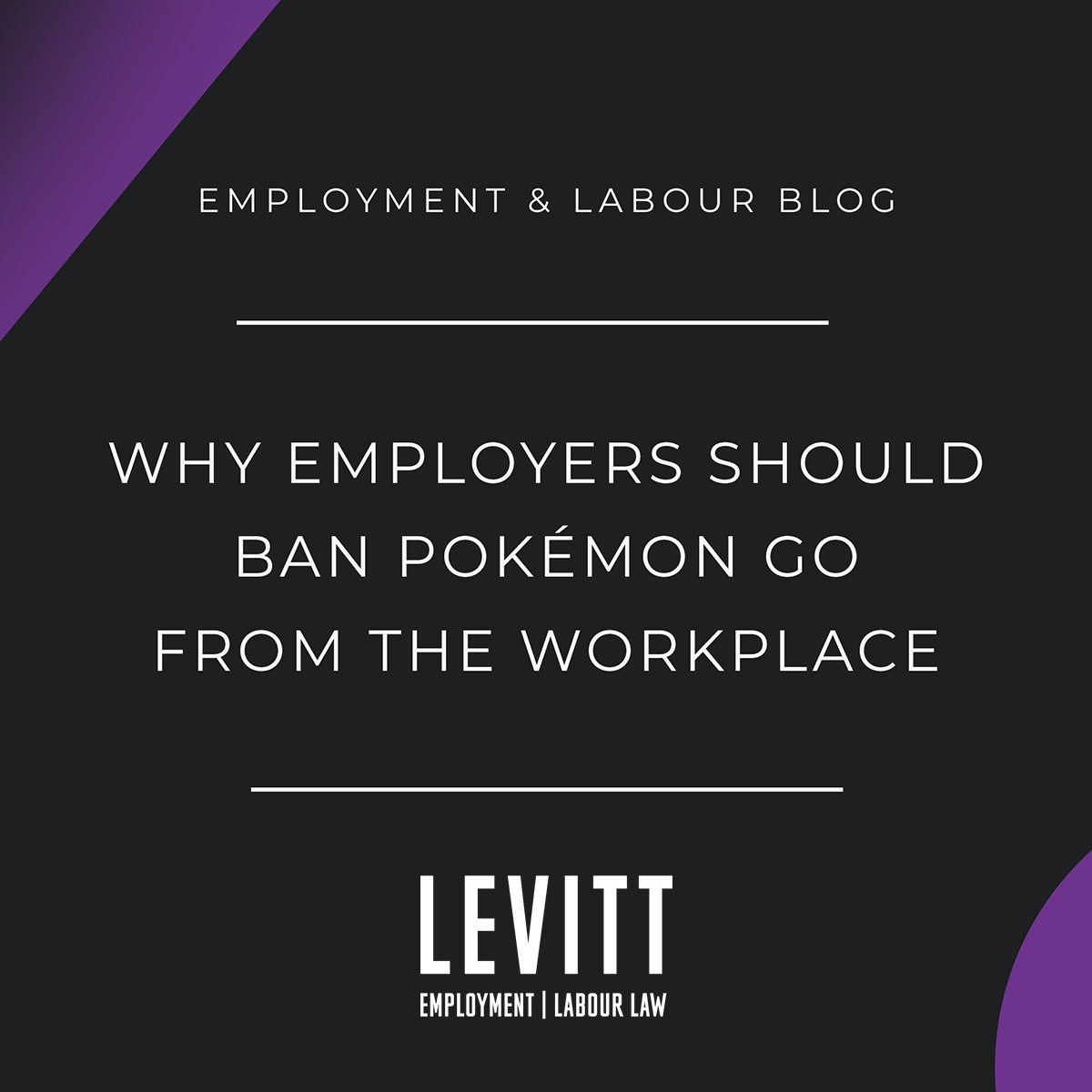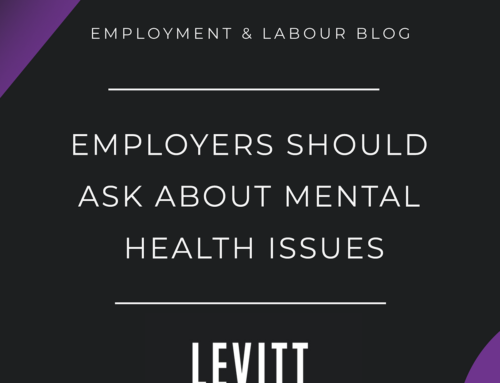It’s barely been a month since Pokémon Go has been available in Canada and employers are already concerned about this gaming phenomenon that is stealing time and putting people in danger. I’ve already heard from two clients and witnessed at least three near accidents related to it.
Pokémon Go lets players use augmented reality technology on their smartphones to “hunt Pokémon.” While it can be a fun pastime, when game apps begin to affect an employee’s ability to work, it may be time for employers to ban them in the workplace or watch as productivity declines.
One client complained that a previously stellar employee, who drives a dump truck, was caught playing the game on four occasions in the past three weeks — in his truck. Another employer sought advice on dealing with a chronically late employee who lied about missing the morning train (his twitter revealed he was catching Pokémon).
Here’s what employers can do:
Players are encouraged to download the app on the device they use most, which means there is a good chance the game will end up on a phone owned by the company. Employers should ban the downloading of games such as this outright and ensure the policy is clearly posted, and employees are aware playing the game will result in discipline. And even if employees use their own phone, companies should ban playing Pokémon Go, or other such games, during working hours.
While it is difficult to terminate for cause on the first violation, if it follows a string of other incidents related to time theft, gaming, low-productivity related to distraction, and insubordination, then it could be sufficient for employers to rid themselves of the problem employee without providing reasonable notice.
It’s more complicated if employees are playing games at work on their personal devices. While an employer can’t dictate what an employee downloads (criminal ones aside – i.e. child pornography, etc.) on his or her own phone, if they leave work frequently to, say to linger around a Pokémon hotspot, monitor the time and frequency.
Of course, it is more difficult to monitor employees working outside the office. In such cases, employers should be measuring performance generally.
There are obvious safety concerns, as well. If, for example, the dump truck driver is in an accident as a result of playing the game, outside of the risk of fatalities and serious injuries, the employer’s public brand stands to be severely tarnished. There could also be liability issues. Many players brag about catching Pokémon while they drive and there have already been several reported car accidents while playing.
Here’s how I recommend catching the perpetrator trying to catch Pokémon:
1. Revisit and revamp: If you have not looked at your mobile phone and social media policy in a while, do so. Hold a mandatory meeting where you remind employees that there is a high risk of injury involved when using a phone distractedly while at work. You have an obligation under the Occupational Health and Safety Act to keep your employees safe. That includes ensuring all employees adhere to policies about safe smartphone use while at work. Provide training on the issue and ensure your managers are leading by example.
2. Research: If you suspect an employee is Pokémon obsessed, don’t be afraid to review their online posts (to the extent you have access, without invading an employee’s privacy) which, since players love to brag about their Pokémon conquests, may reveal the true reasons behind tardiness and long lunches and breaks.
3. Ban: Implement a strict policy that clearly delineates employees are prohibited from downloading Pokémon and similar games on their work phones. Ensure the policy is implented fairly, leaving no room for anyone to take the position others were treated differently when caught on their smartphones. It should be unequivocally clear that a violation will result in discipline.






